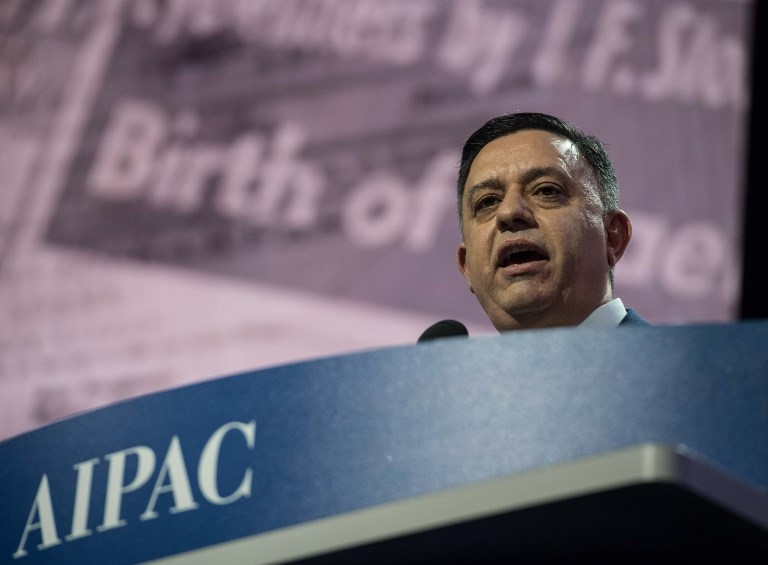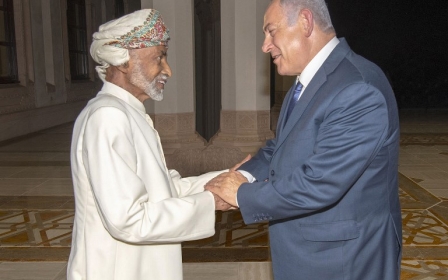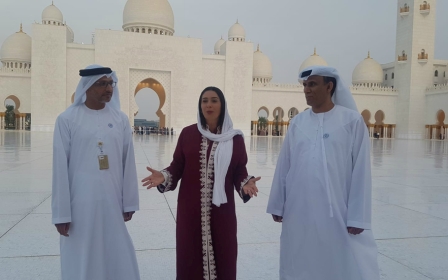Israel's Labor Party leader quietly visited Abu Dhabi on a commercial flight: Report

The leader of Israel’s Labor Party, Avi Gabbay, has secretly visited the Emirati capital of Abu Dhabi and met with senior UAE officials, a report by Israel’s Channel 10 said on Tuesday.
Gabbay travelled on a commercial flight from the Jordanian capital Amman and stayed in the UAE between 2 and 4 December.
He met senior UAE officials, among them ministers, and was accompanied by a Portuguese-Israeli journalist and member of Labor Party, Henrique Cymerman, who coordinated Gabbay’s secret visit through a Moroccan national who has contacts with senior officials in the Emirati government, according to Channel 10's report.
The Moroccan national was not named, but Channel 10 said he has coordinated a previous meeting of Gabbay with Arab officials.
Gabbay discussed with the Emiratis the Palestinian question and Trump's unilateral “deal of the century", Channel 10 said.
Channel 10 said that Gabbay reported back to Yossi Cohen, head of the Israeli Mossad, about his meetings. It also said Gabbay recently met with other Arab figures including the king of Jordan, Abdullah, and Palestinian Authority president, Mahmoud Abbas.
The report comes on the same day that Middle East Eye reported that Cohen attended a meeting in a Gulf capital in early December with senior intelligence officials from the UAE, Saudi Arabia and Egypt where they discussed measures to curtail the regional influence of Turkey and Iran.
The UAE, like most Arab countries, does not have official diplomatic ties with Israel and does not officially recognise the state of Israel.
It was the first time an Israeli minister made an official visit to the UAE.
'Subterranean normalisation'
Israel is also building closer ties with other Gulf states including Saudi Arabia and Bahrain as part of a policy of what Israeli Prime Minister Benjamin Netanyahu has called "subterranean normalisation” driven by a perceived shared threat posed by Iran.
Netanyahu in November also visited Oman, which does not recognise Israel, and was hosted in Muscat by Sultan Qaboos.
BDS campaigners in Oman subsequently told MEE that the sultan may have breached an Omani law which he passed himself forbidding ties with Israel.
Among the Gulf states, Saudi Arabia, Oman and Bahrain are becoming more open about their relations with Israel at the official level.
Despite the warm official ties that Israel has attempted to develop with Gulf Arab states, the 2017-2018 Arab Opinion Index poll, conducted by the Doha Institute, indicated that 90 percent of Arabs believe that Israel "poses a threat to the security and stability of the region".
New MEE newsletter: Jerusalem Dispatch
Sign up to get the latest insights and analysis on Israel-Palestine, alongside Turkey Unpacked and other MEE newsletters
Middle East Eye delivers independent and unrivalled coverage and analysis of the Middle East, North Africa and beyond. To learn more about republishing this content and the associated fees, please fill out this form. More about MEE can be found here.




